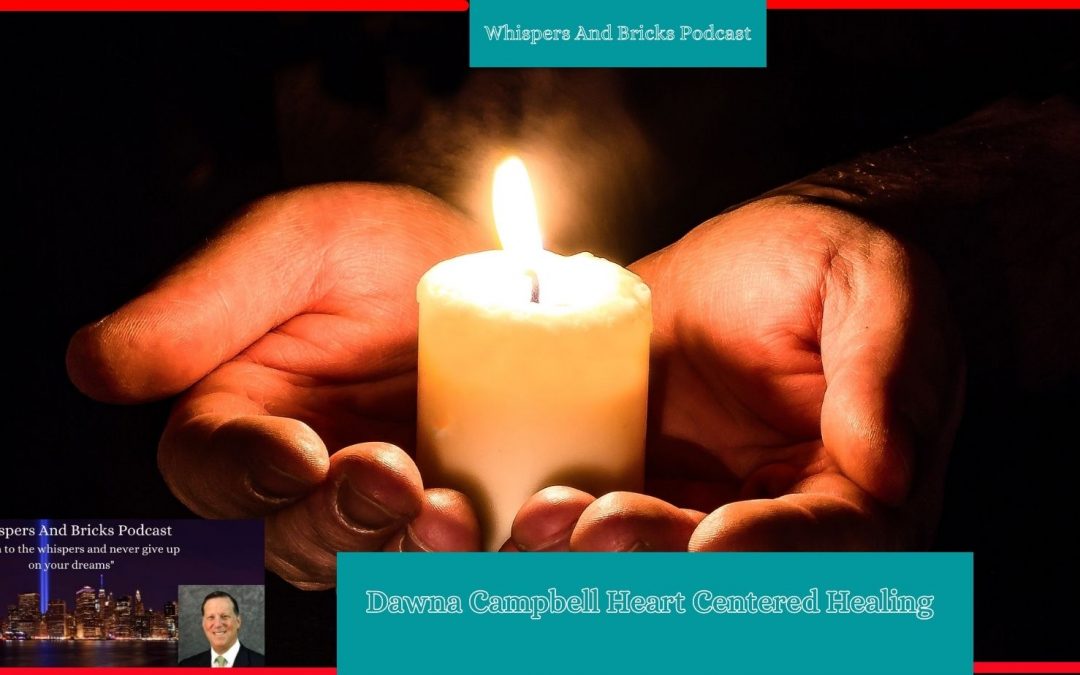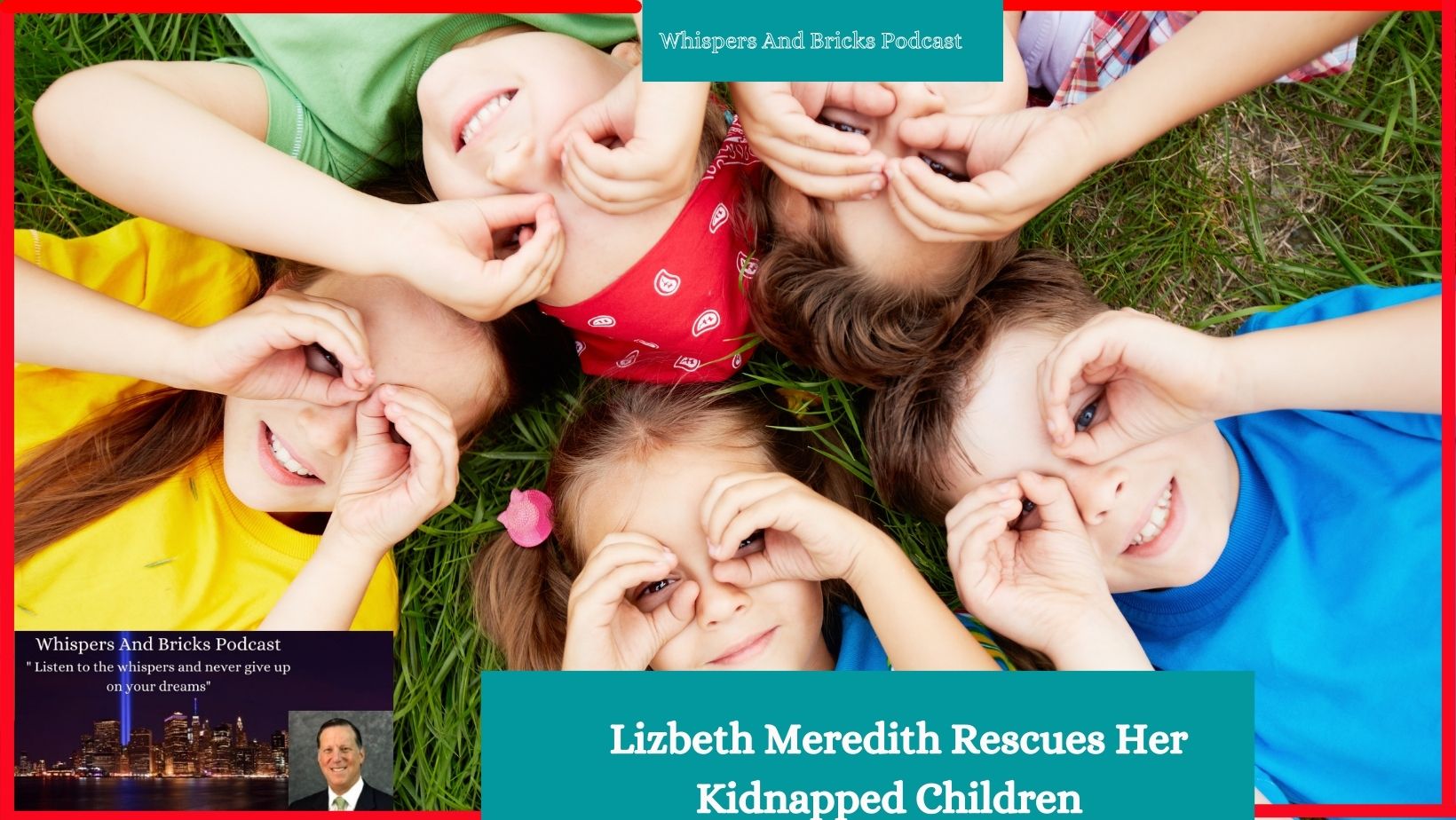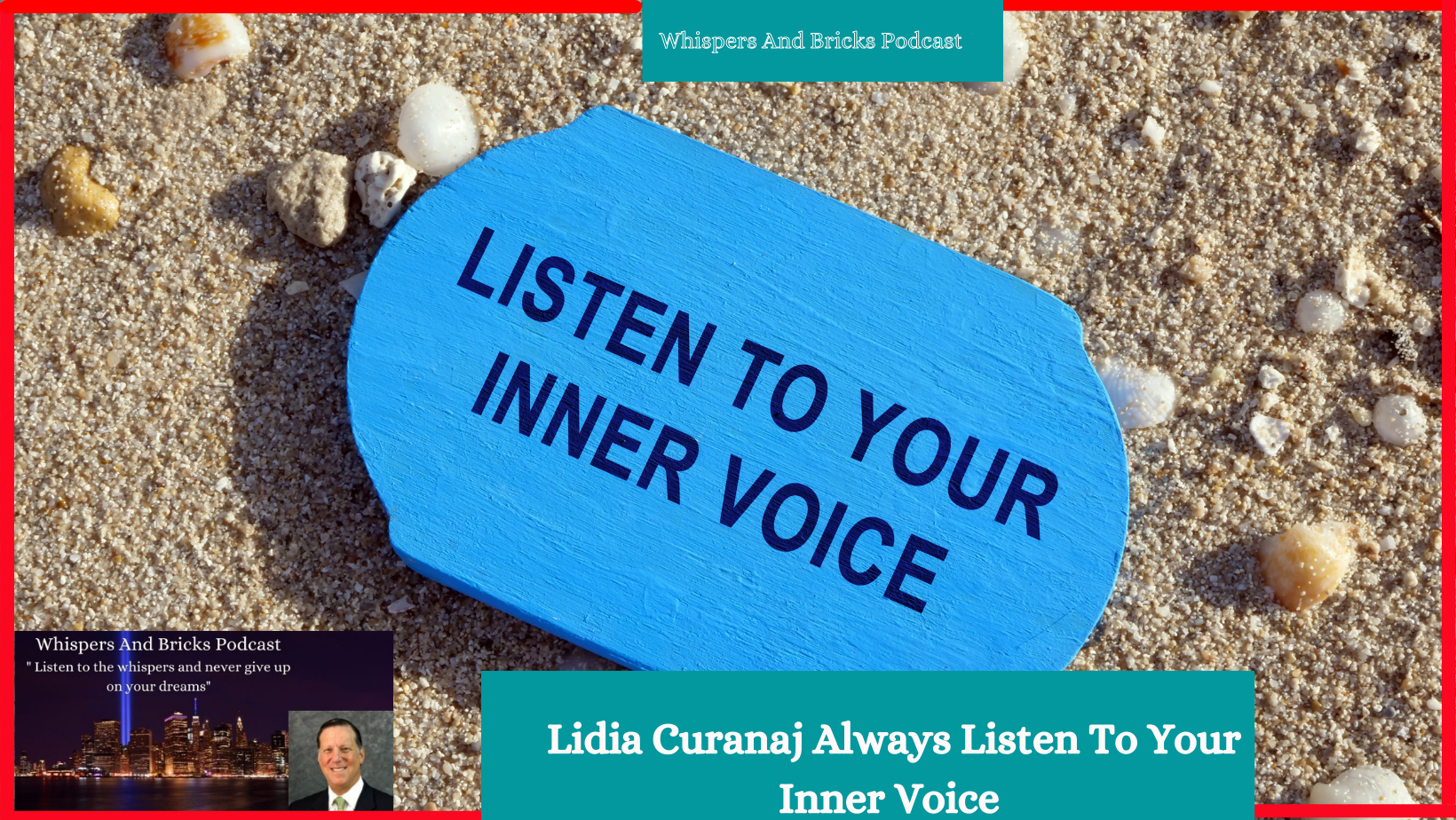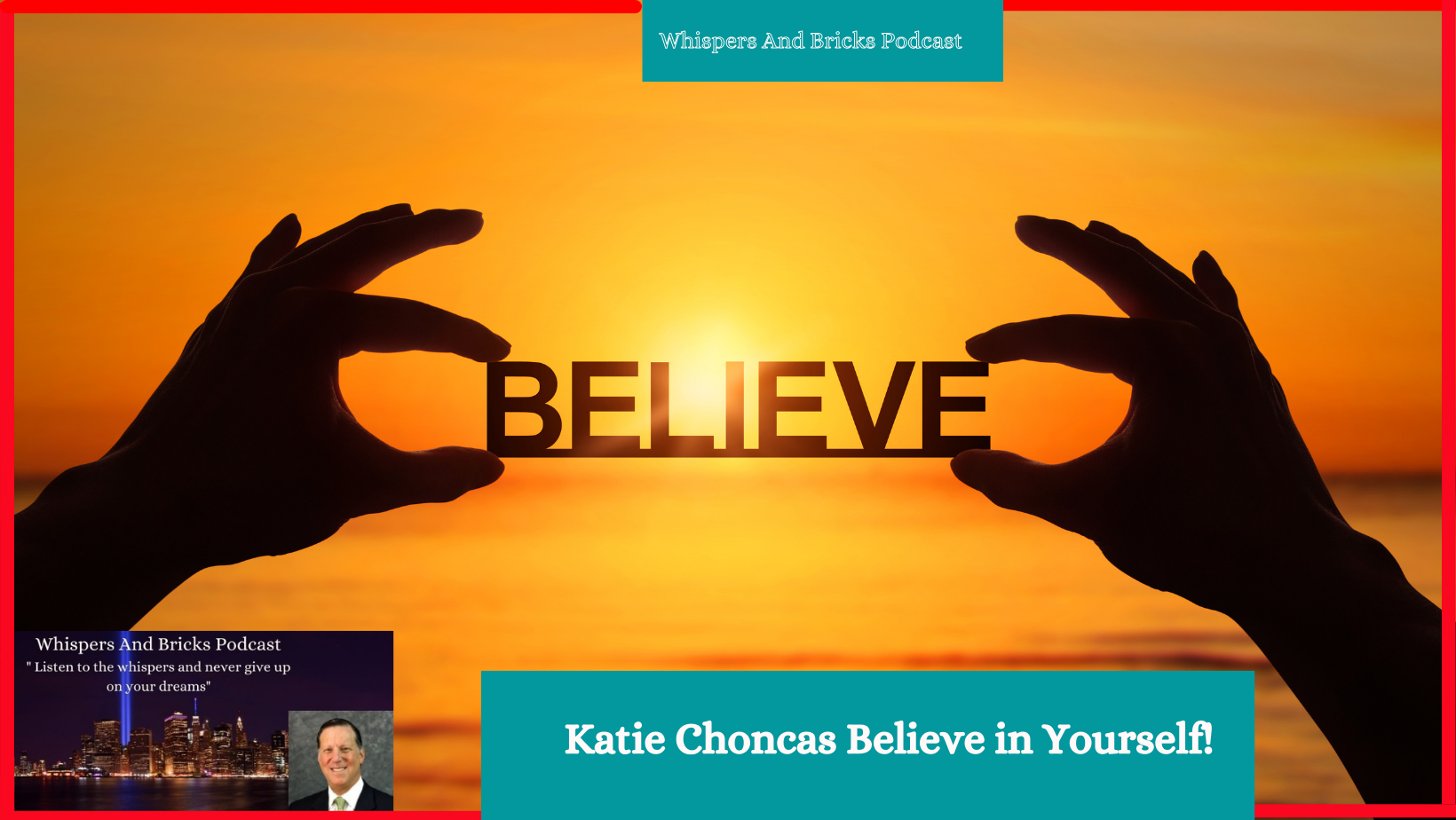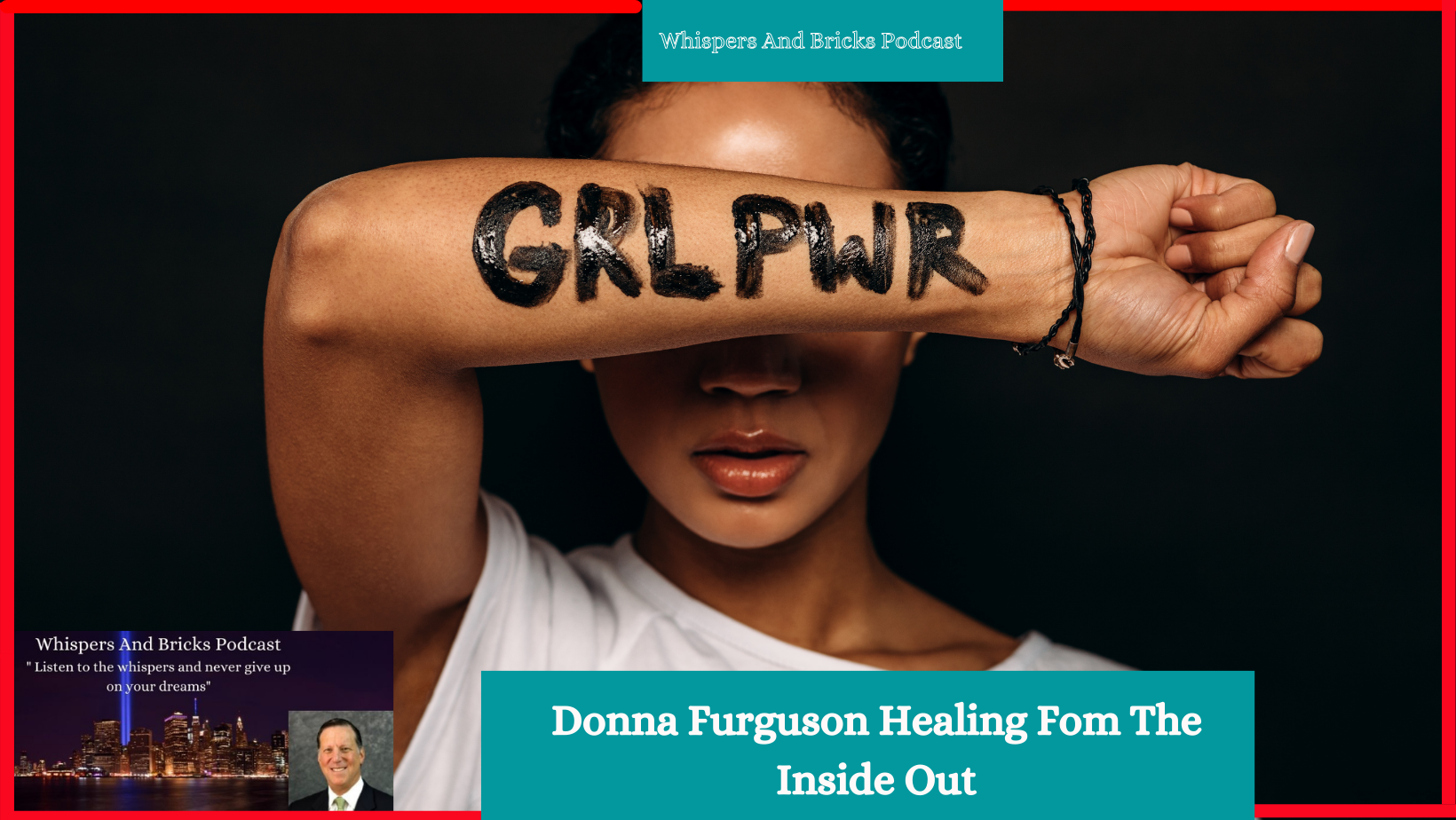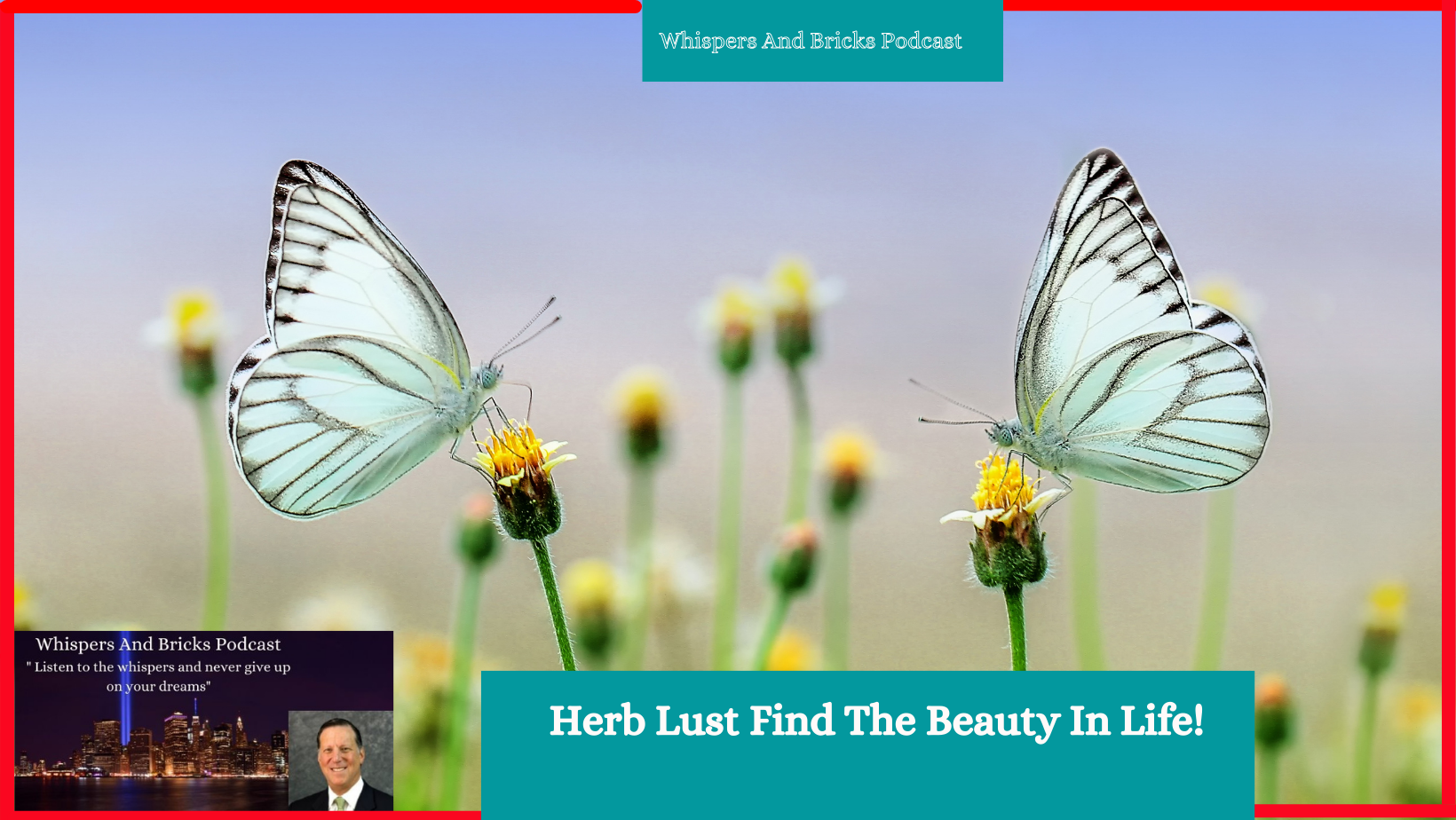Donna Furguson Healing From The Inside Out
Summary:
Donna Furguson shares her story of being a domestic violence survivor that used her experience to help others live more fulfilling, empowered lives. She describes the massive bricks she faced and the whispers that helped her get out of that situation to find her path in life and happiness. She reminds us that healing happens from the out.
Episode Transcription
Intro Plays
Ari: Welcome to whispers and bricks. My name is Iris Sherwin, I’m your host I have with me today, Donna Ferguson. Donna is a very, very interesting woman from Australia. And her story basically is after experiencing domestic violence at the age of 21, Donna wanted to find a way to pursue her newfound gift. Working on a self worth, she discovered a way to heal from the inside out, and now shares this with her clients through self worth, emotions and feelings, beliefs and healing. from the inside out. Please help me welcome Donna Ferguson.
Donna: Good, how are you?
Oh, my pleasure, really. So how you been?
Ari: I’ve been fantastic. As always, I love doing what I do. And I enjoy every day regardless of what’s going on around me. Dad’s beautiful, that’s such a great, great way to look at life. Now, as you know, the name of this podcast is whispers bricks, the whispers of those voices telling us that what is the right thing to do. And they represent the good in life. And the bricks represent the bad things that we go through in life. And let’s be real, everybody goes through everybody has some bricks thrown at them at some point in time or another in their lives, whether it’s little bricks or big bricks, whether it’s a lot of bricks or a little bricks, but some people, you know, it’s always the the ones that look perfect are usually the ones that have the most trouble. Now, when it comes to you, you had several major bricks thrown at you starting at age 21. When you married into domestic violence, can you tell us a little bit what was going on at that time?
Donna: Ah, that’s a great question. I you know, I was a very adventurous child, I guess my creativity has always been there. And I took some steps in my life that led me to that relationship and totally responsible for that. Like, I’m grateful now for that journey, because it’s really given me a different way to see myself. You know, sometimes we have to go through things to open up and say who we truly are. And so 28 days after I was married, I went through
rific night that I wasn’t sure if I was going to live or die.
Are we talking about like, from abuse? Like, oh my god, I woke up in the middle of the night with a great startle. And I thought, oh, what’s going on? Where am I you know, that shocking, trying to get my bearings and where am I on what’s going on. And
I knew something had woken me up, but I didn’t know what it was. And as I kind of, you know, looked around and my husband was there and he kind of look in his eye was a little bit gray and steely and I sort of still didn’t realize what was going on. And as I started to lay back down the fist, close fist came and hit me in the side of the face. And I guess that was that was the beginning of that night was around midnight. And it went all night
in and out of consciousness, you know dragged by the hair bash cigarettes put out on me, oh my god, you lied there was quite a bit going on that night. And you know, that seven o’clock in the morning I got up and went to the bathroom and I looked in the mirror and I was horrified because I thought Who is that like? I had no recognition of of me at all. My face was bruised, it was swollen. My hair was so sore. My head was so sore from the hair pulling
and I just thought I need to share I need to get out of here didn’t know what I was going to do.
And I went and sat for three days down at the Cotter dam which is in Canberra in Australia. And we that’s our water supply one of the water supplies so I sat there for three days. In during the day I kind of hid myself in amongst the trees in the car and at night I sat next to the toilet block
because I there was lights there and
via if I needed to go the bathroom, I didn’t have far to go. And back in those days. I mean, that was like over 40 years ago, we didn’t have the fear of, you know, what would happen if you were sitting out alone at night, right? Sure. That was more in the home. You know, after, after my night there, I had that fear of being at home. So I’m sorry, mentally went home and got changed. And, you know, I didn’t know how to handle I didn’t know what’s gonna happen when I walked in the door.
And of course, he was sorry, that’s never gonna happen. Again, he had a bunch of flowers for me, you know. And as we all know, now, that is the cycle of domestic violence. Absolutely. So it was pretty hard for me to
succumb to
that ever happening again. I thought it was done. And I didn’t know anything about domestic violence wasn’t anywhere in my life prior to that. So, you know, it’s a journey that we embark on, because of the action steps that we take that lead us into certain situations and lead us to certain people. And I’m a strong believer of that.
Ari: So what I did, let me ask it, let me ask you, so let me ask you something.
I’m assuming that very often, they say that, you know, people that suffer through domestic violence, it comes from
seeing it before in their own families, whatever. Was there any situation like that with your parents? It doesn’t sound doesn’t know your parents were like normal people. Yes. Yeah. Okay. All right. Yeah. So, alright, so it’s not. So it’s a little out of the, it’s generally a little out of the ordinary, when somebody marries somebody that, you know, that suffers from domestic violence.
You know, it’s normally it’s something that it’s normally something that’s gravitated to, because they’ve seen that before, you know what I’m saying? But in your case, I guess, you know, you didn’t see before you had no idea what was coming? Um, did you? Did you by the way, did you reach out to your parents at all? Or did you not want to let them know about it?
Donna: That was two days before Christmas. So I didn’t want to Okay, spoil everything. Got it? Yeah, got it. Okay. Yeah, go ahead. Please continue. I’m sorry. No, not at all. Don’t apologize. So. Um, so you know, it kind of went on for a while. And, you know, the cycle was there, and you kind of live in fear. And the fear of, if you leave is far greater than the fear of staying, because they impress upon us so much language around.
You know, you’re worthless, nobody will love you. Nobody will want you.
I’ll kill you, if you leave me all of this language that you start to believe because it’s daily. Right. And
so, you know, while that was a bad night, that first night, there was no other nights that kind of match that was never that horrific after
no excuses. Like, didn’t matter. It was still violent, right. And then I fell pregnant with my daughter. And so that was kind of the change, and things during the pregnancy were great. Great. I was still living in fear every day. Right? Right. But there was no real need for the he didn’t use violence during that time.
And that change the day I went home from hospital.
So,
you know, that was pretty horrific time There was sexual assault, physical assault, verbal assault,
all of the above
the day I got home from hospital with my daughter.
And so when she was five and a half months old, I left I left that relationship, but it was the first time I realized that sometimes there is no thought there is no decision making. Things just happen. Because I came out of a job interview and all the way to the job interview. I kind of thought, you know what this is?
This is not going to be good when I go home after this job interview. So all the way in, I could tell by the language, the behavior. I was thinking, you know, this is really
I don’t know if I’ll ever see my daughter again, if I go home. But, but consciously, I wasn’t thinking of leaving.
So what happened was I came out of the interview and down the stairs, and there was absolutely no thought process. There was nothing, I did not make that decision. Somehow I ended up in a taxi in the opposite direction, and went to my mom’s work.
And now, it was never, what was your daughter at the time? She was in the car with my husband? The cloud, your husband? Okay. Yeah. So, um, I didn’t even have $1 to pay for that taxi. You know, they, they charge more than that for the flag for this year, these days, what they call the flag fee, right? Here in Australia. I’m not sure what they call it there. And so, for me, it was like, I’m here, I don’t know what happened. And my mom’s like, Where’s, where’s your daughter? And I was like, she’s not with me.
So I had all these emotions going on. But out of all those emotions, that was I just knew I needed to be then I, I had no idea how I’d got there. You know, mentally, I had no recollection of making a decision. I know, I was picked up and taken there.
And that was the first time I ever kind of connected to something being of a higher source, what we know now or refer to as higher source or spirit, right?
And so,
three days later, my daughter was reunited with me. He had brought her back, I must have known deep within myself or because I was guided, that she was going to be okay. I knew he had his sisters. I knew we had his mom. And I figured that that’s probably where she’d be. And you didn’t think he would be looking after her? For three days on his own? Right? Yeah, you know that thing. So.
So that was a relief to have her back. But that wasn’t the day I got my power back. The dial got my power back was a day I left a counseling session, which in those days, 40 something years ago, there was you must try and repair your marriage. Yeah. Right. There wasn’t any it wasn’t easy to get a divorce,
regardless of violence or not.
And I remember saying to the counselor, are you married? And she said, No. I said, Have you ever been married? She said, No. And I said to her, Well, I don’t think you’re in a position to tell me that I need to repair a marriage.
You know, hey, you know, I hear I hear that. It’s pretty, pretty amazing. Yeah. And I said, I think we’re down here. So going off, and I walked out. And when I walked out, and I got to the boss, and I stood on the bottom step, because he was right behind me. And I said to the bus driver, do not let this man on the bus. He’s gonna hurt me.
After having shut the door right behind me. So I’m lucky I pulled my button.
Ari: Wow.
Donna: And that was when I felt I have my power back that day. Because I had walked away. I had stood up. But more importantly, I took his power away.
Well, no longer had power over me.
Ari: So you picked up you took your five month old daughter, you walked out? You got a divorce? What happened? I mean, what did you do? I mean, where did you go? How did you support yourself?
Donna: I stayed with my mom for
six or seven months, and then moved into what we call her government housing.
So that was all fine.
My mom said to me, I think we need to go and seek some information on Social Security. Social Security was like, where the government benefit comes from if you’re a single parent more anything else, you know, to do with government income.
And I was so ashamed and I went I don’t want to go there, mom. Yeah, shame, guilt. Sure. You know, all of these things. She said, No, I think we really need to go there. We need to sort something out. So you have some money coming in. So anyway, we ended up going and so yes, I was on a single parent.
benefit. I lived on that with my parents until I moved into the government housing. And then of course, I had the government housing, so I had
the income to support me and my daughter. Oh, wow, that sorry. Yeah. All right. How long was that?
Ari: Um, I was on my own for 70 years? Well, actually, no, not quite.
Donna: I was on my own for about three years,
and met somebody who, as it turns out, he was not the most faithful person.
However, a number of years later, I heard that he had a gun at the head of his partner and his daughter. So I’m like, I’m blessed that I didn’t go through with that relationship. Oh, absolutely. Sure. Wow. Wow. Thank goodness, he was not faithful to me.
There you go. You know, that was the blessing there. Right. Um, so but then my daughter was seven years old, then when I met somebody. So was basically seven years. And yeah, so then
we moved states. So we moved from Canada, which is where a very cold,
cold winter and very, sometimes extremely hot summer
to Queensland, which was warm winters, and very warm summers. But it was more an ocean will near the ocean. So we had the afternoon breezes and things. So it was really great as far as that goes. But interestingly enough, that relationship wasn’t great. And I came to realize, after I left that 12 year relationship, that there’s healing to be done inside out, you can’t just suppress everything and believe that, because you’re not talking about it, because you’re not feeling the emotions. Or because you’re not thinking about it on a regular basis, that you’re done with that.
Because we all know that suppression of expression
are those that are involved with their highest self and those that understand, you know, laws of attraction laws of vibration, universal laws, that
when you suppress your feelings and emotions, the physical sense of that becomes anxiety, that internal emotion and and condition becomes depression. And depression, as we know can form all different levels of illness or disease in our body, including mental health, physical health, can even cause some, some cancers. Because what are you, whatever you are suppressing, is definitely an emotion that can eat you from inside out.
Ari: Wow. So let me ask you this. Let me ask you this, did you when you were going through this journey to get to a point so low, where you said to yourself, you know what? I quit. I’m giving up on myself. I’m giving up on my dreams. You know, I just can’t do this. I’m gonna, you know, roll up into a ball and, and I’m gonna die. You know, I mean, did you ever? Did you ever get to that point? If so, alright. How did you manage to turn it around and get out of that?
Donna: Yeah, really good question, Ari.
You know, I don’t
I don’t know that. When I was on my own I ever thought.
I don’t want to live anymore. I definitely had some really shocking days. Yeah. Ah, you know,
you question everything that you do. You’ve got a daughter, are you doing the right thing by her? I was in search of somebody that would, you know, be a father figure to her because I thought that was the right thing to do. I knew nothing about unique vibrations, energy.
You know, law of attraction. I knew nothing about that at this stage. So it was about you know, what I thought was the right thing for her and myself.
And, you know, when you think you’ve made the right decision, and it all falls apart, thankfully she was
Growing up by then, and she had joined the Royal Australian Navy. So I didn’t go through that separation with her and she stayed connected to both him and myself.
You know, for the rest of her life, basically, she’s still in touch with him. So and I respect her for that, you know, he was the father figure for her. But,
um, when I, when I left him, I found
networks of people that started to lift me up.
Ari: were the these, these were the whispers that you are getting now, you know, after getting hit with so many bricks, my heart goes out to you, I honest to god, my heart goes out to you. But after getting hit with so many bricks, you know, it’s time that the whispers started to come and, you know, and help you move on. All right, I turn your life around.
Donna: Very much, very much. And, you know, it was then that I met people,
you know, through, I went to a work function, actually, it was like, what did they call it a conference or work conference over three days, two or three days, weekend, Friday, Saturday, Sunday, I think it was. And there was a speaker there. And I was like, oh, man, I want some of what he’s got.
He was he was high energy. And I’m like, I want some way. He’s got whatever is on me, like, I want that. Yeah. Um, and so I started to follow him. And then I started attending his events. And then
you know, if you connect with people, that’s natural, when you go go to these events, and I felt like I was being lifted. And then I met my current husband, and I didn’t met him, meet him at one of those functions. I made him elsewhere. But then he started to come with me. And we’ve got some great friends through that, you know, we’ve got some really fantastic relationships from that.
And
I got to a point, I guess it was a crossroads. Where do I keep spending a lot of money with this following following this person? Or do I look for something more, that’s gonna help me. So
you know, and I really truly always believed that you invest in yourself, but wasn’t getting the return for what I was investing was what I was looking at.
And so I went on a search for a coach
decided I wanted to help people, I wanted to bring people, you know, the high that I was on, right? You know, I wanted people to live on a high vibrational life, like I was beginning to do. And I talk to people and they ask questions, and they tell me things. And then, you know, I had people saying, you need to do this for a living, like, You’re good at this. Right. And, and so I was like, Okay, so maybe that is something I need to do. So I started a business and I thought, I need a business coach.
You know, and I spend a lot of money on coaches that you get partway through, it’s like they just not get not I don’t feel it.
You know, the winds were coming in you guys. It’s really what you want. Wasn’t self sabotage. And was it just not the right person for me? Then you got to decipher all those internal, you’re not good enough. What makes you think you can do this? Yeah. The noise in the chatter.
So I really,
I went through, I think two or three coaches, and I met somebody who I really resonated with. And she was one of
Bob Proctor’s highest consultants. And so I started working with her and I,
you know, Bob Proctor is all about law of attraction. He was in the secret, the movie, The Secret.
And I really resonated with this lady and I started doing the work and I just felt a shift. Well, I just felt things in my life were changing. And you got to do the work, right? Nothing happens if you don’t take any action 100% Nothing happens if you don’t change, like you’re going to get the same results. If you don’t change something, you’re doing all of this, all of this data coming out all the things I’ve had before. I’m like, why am I hearing this again, all because I need to act on this or I need to share this. Right. And so I was three quarters of the way through that coaching.
And I met I didn’t mean I’d known her for a number from the network I was involved with,
with
We’d been connected. I’ve interviewed her a few times on a series I was doing at the time. And we’re running into each other. And she’s like, she rang me up. She said, What are you doing?
And she said,
I know, I know, I can help you. Why don’t you coach? Why don’t you work with me, I’ll be your coach. And I was like, I’m loaded with Coach like, you know, kind of Florida, you know, all those things started coming up again. And she’s like, Donna,
the work that you’re doing with Bob Proctor staff and my work will resonate beautifully. I’ll make it affordable.
All right.
Donna: I’m thinking I’m in trouble. Because I’ve known her for 10 years, right, and years. And she always tells this story now. And she’s like, sometimes people will follow you for 10 years. Don’t they don’t know until a decision. Yeah, guys, do you want to tell him the story? I’m like, Yeah, okay. Right. Yeah, no.
So, you know, Sharon’s, like, Come on, I’m gonna make it affordable. And I still didn’t know. But the minute I started working with her, I started picking up clients, right.
So it wasn’t just the Bob Proctor stuff. It was her systems and processes, right, rather than the internal work that actually brought it together to work well, and so I still work with her.
I still work with her. I listen to Bob stuff every day. Right? I’m still doing the work. I structure a lot of my coaching around the context of his work, but have the systems and processes from me that I can implement, depending on who I’m working with. Right. So, um, you know, and as a Hypnotherapist? I can include that in everything that I do. Wow. Wow. That’s that’s just that’s it’s priceless. Yeah, just totally, totally priceless. So just, I’m just curious. You have a company’s called, or an organization called unique vibrations. What what what is that? What is that all about?
That’s a very conscious decision to rebrand and coaching business. I add.
Sorry, I’m the reason I wanted to rebrand was because I
wanted to step up. I wanted to develop
a business that was on a whole new level.
I consciously came up with a name unique vibrations.
Because I was very much about, you know, energy and vibrational energy and law of attraction. You know, I done a bit of work around that.
Thought I wanted to resonate with something that
you would
give people an idea of where I was heading. In my business, because I made a transformation as we do. We grow all the time, we learn new things, and we develop new things, and therefore we reinvent ourselves. And so what I did was the name was very obvious. I love the color purple. So purple was going to always be a color that was representative of my business. Mm hmm. Hence the purple Christmas. Yeah, there you go. But my purple shirt with my with my branding on it.
So
it was purple, golden white. And, like, it just came up, and then somebody came up with the logo, which you can see oh, you can see it on the background there.
The vibrations is very vibration, low energy.
Uh huh.
And it was more
then how was I going to implement what I know, into this, I wanted to be unique, but I wanted people to know that I was going to be working around, you know, vibration, energy, that sort of thing. And that’s how I developed the company. And then, um, you know, you just go from there, like, I knew the work I wanted to do. And that has changed. That’s changed over the last number of years. Since I’ve had unique vibrations, and I’m going through another big change right now. You know, I’ve got new things coming in for 22. I, you know, I’m working more with law of attraction. I know that I manifest things like this now. Wow.
In the last two weeks, I’ve had a massive shift
with things. The last three months or my last three months, I was writing things, you got to do the work. Right, right. Sure. Every day. Sure. I wrote my affirmations in a goal structured way, so that they’re in the present time. And I write those up every day. I have a list that I wrote up because I was like, two weeks ago. I’m thinking, You know what? Something’s got to change here. Who am I? I write, who am I to think I can?
Now that is a great question. Yeah. No, it’s opposed to Who do I think I am? That I can’t. You know, I got it. I got it. Really good. Really? Right. I don’t know you.
Right. Yes. Right. I write a list. You know, I’m a creator. I am a successful business coach. I manifest money from unexpected pathways. I am respectful of money. I am a great salesperson. Like the list goes on. So it was I am, right. That’s great. I am very powerful words.
Ari: Yeah, absolutely. Absolutely. Yes. You something. So did you did you ever did you remarry?
Donna: I’m married. Yeah. I’m married to my husband. We’ve been married.
17 years in February. Wow. That’s all in February. Yeah. What’s your anniversary? 27. Oh, my God. My anniversary is the 25th Oh, wow. We were gonna we were gonna get married on the 14th of February. Yeah.
The person we had lined up to do our music. Couldn’t make it on the 14th. So we changed it to 27. Well, as it turned out, he couldn’t do the wedding anyway.
So we could have probably got married on the 14th of February. 27. Good. Yeah, absolutely. 25th 27
Ari:There you go. 100%. Now, you did you had one child from your first marriage. And any more kids or rather personally have any?
Donna: My husband’s got two children. Okay, so together, you’ve got three. And we have eight grandchildren? eight grandchildren. Wow, congratulations. Of course, you know, I’m going to tell you that you certainly don’t look old enough to have grandkids. Okay, I’m just gonna tell you that right now. Oh, you’re too kind? Yeah.
Ari: Let me ask you this, um, who’s the one person that you would point to, that you would say had the most influence in your life and why?
Gosh, there’s been so many over the years.
I’m going to go more recent.
And I’m going to say
Bob Proctor for the reason that
the work that he does, is
so powerful for people to understand, on a deeper connection about releasing the root cause
of any challenges or experiences that they’ve had in life.
To be able to move forward that inner healing. He doesn’t talk about inner healing so much, but the structure of these programs is very much look at who you are internally. Where did that belief come from? Why do you still believe that? He makes you look at who you are? I know. I knew you were gonna say that. And I’ll tell you why. No, I knew you’re gonna say Bob Proctor and I’ll tell you why. Because every time you mentioned his name or talked about him, your your face lit up. Okay, there was a shine there was a your eyes lit up. So I you know, obviously this man had a had a tremendous impact on you. So, so I get that. Before we go. Would you have any words of wisdom for my audience? I mean, I know I’m gonna be honest with you. I know there are people that have gone through or are going through some of the things that you went through. What would you what would you what kind of words of wisdom would you give these people?
I would say, and this might sound a little cliche, always trust your gut. Trust your intuition.
And the reason I say
That is, so often we can go somewhere. And we can have a feeling about someone because your intuition is your energy. So
we can go somewhere, and we can try and tell ourselves that that person’s okay or that that place is okay. Or that we want to look at 10 different things that we always come back to the original that we thought we were really happy with to start with.
It will never ever lie to you.
Ari: You know, we call that in, in our, in our, in our terminology here. We call those the whispers. Yeah, that’s what you call them. Those are the whispers that your god that’s that’s telling you what the right thing to do is and you have to listen, listen to those whispers and you’ll be okay. Wow, such great, great words of wisdom. Donna, I want to thank you so much for sharing your story with my audience. I want to wish you all the best good luck going forward. Oh, before we do that, before we go.
My question is if you want to get in touch with you, all right, what would be the best way for them to do that? Do you have a website? Do you have? I’m sure you do. Do you social media.
And where are you located? Exactly. I’m on new. I’m in New York.
All right. So what’s the time difference between us? I’m just curious. Right?
Donna: Okay. First question. Yes, I have a website WWW dot unique vibrations.com. Okay. And I’m on all the socials. Well, all the socials, I’m on Insta, LinkedIn, Facebook. Okay, great. So by me, they they’re the ones I’m active on. Wonderful. So you can message me through the and it’s
it’s either a combination of Donna Ferguson and unique vibrations. Facebook is Donna Ferguson and I have a unique vibrations page as well. Um,
what was what was the other part of that?
No, the other part was, I asked you what the time difference is?
Ari: Yes. I don’t want people reaching out to you. And then you know, you know, a day or two goes by and they haven’t heard from you and they don’t realize that.
Donna: I think what is it? 16 hours between us? It is approximately 16 hours. We’re coming into 10am 10am. Friday morning. Okay, and I’m sitting here at 5:54pm on Thursday night. Yeah. Wow. Okay. Yeah, it’s around about 16 hours. So, um, no, I always have my phone on. Turned off while I’m sleeping.
My Fine I will receive all the messages fasting in the morning. I said rockin as soon as I turned my phone, which is you know, before I’m almost before I’m out of bed, right. So as soon as I’m up, I have my fine, ready to go. Okay, feel free. Um, you know,
through just reach out, just reach out. Just reach out. Okay, just Donna unique vibrations that come with www dot unique vibrations that calm
Instagram or LinkedIn, or Facebook, all the social media.
Ari: Donna, thanks so much for sharing your story with my audience. I know you’ve touched the lives and hearts of them. of many of them. I want to wish you all the best. Good luck going forward. You been listening to whispers in bricks and I’m your host Gary shoma. Remember, if you feel like you’re stuck in the mud, you’re spinning your wheels wasting time and your career your business or your life. If you know you’re not enjoying all the success, satisfaction and significance that you desire, then it’s time for you to book a call with me at call with REI comm check out my whispers and bricks Academy. And until next time, listen to the whispers avoid the bricks and never, ever give up on your dreams. Bye for now.
